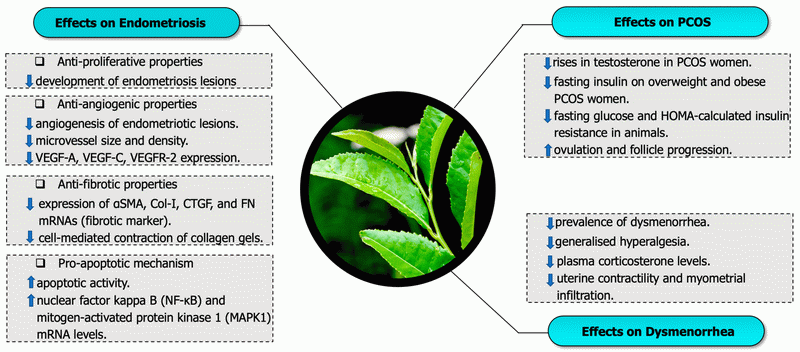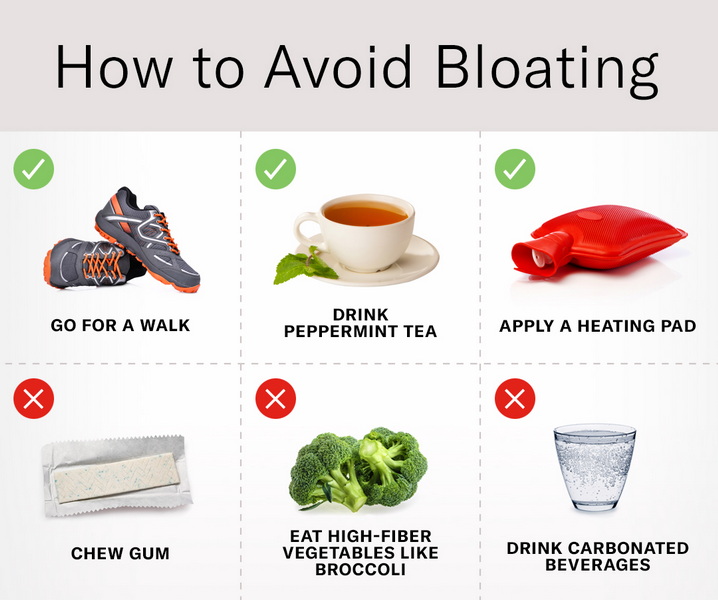Content Menu
● Understanding Green Tea Extract
● The Benefits of Green Tea Extract
● Green Tea Extract and Bloating: The Connection
>> Causes of Bloating
>> Can Green Tea Extract Contribute to Bloating?
● Minimizing the Risk of Bloating from Green Tea Extract
● Other Potential Side Effects of Green Tea Extract
● Green Tea Extract vs. Brewed Green Tea
● The Role of Green Tea in Digestive Health
● Conclusion
● FAQ
>> 1. How long does bloating from green tea extract typically last?
>> 2. Can green tea extract help reduce bloating in some cases?
>> 3. Are there any alternatives to green tea extract for similar health benefits?
>> 4. How much green tea extract is safe to consume daily?
>> 5. Can decaffeinated green tea extract still cause bloating?
● Citations:
Green tea has long been celebrated for its numerous health benefits, from boosting metabolism to improving heart health. However, as with any dietary supplement, it's essential to consider potential side effects. One question that often arises is whether green tea extract can cause bloating. In this comprehensive article, we'll explore the relationship between green tea extract and bloating, its potential benefits, and possible drawbacks.

Understanding Green Tea Extract
Green tea extract is a concentrated form of green tea, typically available in capsules or liquid form. It contains high levels of polyphenols, particularly catechins, which are responsible for many of its health benefits. The most abundant and well-studied catechin in green tea is epigallocatechin gallate (EGCG)[1].
The Benefits of Green Tea Extract
Before delving into the potential side effects, it's important to understand why many people choose to incorporate green tea extract into their diet:
1. Weight Management: Green tea extract may help boost metabolism and increase fat oxidation, potentially aiding in weight loss efforts[3].
2. Antioxidant Properties: The high concentration of catechins in green tea extract provides powerful antioxidant effects, which can help protect cells from damage caused by free radicals[1].
3. Heart Health: Some studies suggest that green tea extract may help lower the risk of cardiovascular disease by reducing bad cholesterol levels and improving blood flow[3].
4. Brain Function: The caffeine and L-theanine in green tea extract may help improve cognitive function and reduce the risk of neurodegenerative diseases[2].
Green Tea Extract and Bloating: The Connection
While green tea extract offers numerous health benefits, it's crucial to consider its potential effects on digestion, including bloating. Bloating is characterized by a feeling of fullness or swelling in the abdomen, often accompanied by gas[4].
Causes of Bloating
Bloating can be caused by various factors, including:
- Overeating
- Consuming gas-producing foods
- Swallowing air while eating or drinking
- Digestive issues
- Hormonal changes
- Certain medications
Can Green Tea Extract Contribute to Bloating?
While green tea is generally considered safe for most people, some individuals may experience digestive discomfort, including bloating, when consuming green tea extract. Here are some potential reasons:
1. Caffeine Content: Green tea extract contains caffeine, which can stimulate the production of stomach acid. For some people, this may lead to digestive discomfort and bloating[1].
2. Tannins: Green tea contains tannins, which can increase stomach acid production and potentially cause nausea or bloating in sensitive individuals[1].
3. Empty Stomach Consumption: Taking green tea extract on an empty stomach may increase the likelihood of experiencing digestive issues, including bloating[2].
4. High Doses: Consuming large amounts of green tea extract may increase the risk of experiencing side effects, including bloating and other gastrointestinal issues[6].

Minimizing the Risk of Bloating from Green Tea Extract
If you're concerned about bloating but still want to enjoy the benefits of green tea extract, consider the following tips:
1. Start with a Low Dose: Begin with a small amount of green tea extract and gradually increase the dosage to allow your body to adjust.
2. Take with Food: Consume green tea extract with meals to reduce the likelihood of digestive discomfort.
3. Stay Hydrated: Drink plenty of water throughout the day to support digestion and minimize the risk of bloating.
4. Choose a High-Quality Product: Opt for reputable brands that use standardized extracts and undergo third-party testing.
5. Listen to Your Body: If you consistently experience bloating or other digestive issues after taking green tea extract, consider discontinuing use or consulting with a healthcare professional.
Other Potential Side Effects of Green Tea Extract
While bloating is a concern for some, it's important to be aware of other potential side effects associated with green tea extract:
1. Liver Problems: In rare cases, high doses of green tea extract have been linked to liver damage. Symptoms may include yellowing of the skin or eyes, nausea, and abdominal pain[6].
2. Caffeine-Related Side Effects: The caffeine in green tea extract may cause jitters, anxiety, sleep problems, or increased heart rate in sensitive individuals[6].
3. Iron Absorption: Green tea extract may interfere with iron absorption, potentially exacerbating anemia in susceptible individuals[1].
4. Interactions with Medications: Green tea extract may interact with certain medications, including blood thinners and some antibiotics. Always consult with a healthcare provider before adding green tea extract to your regimen[7].
Green Tea Extract vs. Brewed Green Tea
It's worth noting that the concentrated nature of green tea extract may increase the likelihood of experiencing side effects compared to drinking brewed green tea. When consuming brewed green tea, the concentration of catechins and caffeine is generally lower, and the risk of adverse effects is typically reduced[3].
Brewed green tea
The Role of Green Tea in Digestive Health
Interestingly, while some people may experience bloating from green tea extract, green tea itself is often associated with improved digestive health. The polyphenols in green tea may help support gut health by promoting the growth of beneficial gut bacteria[5]. This can potentially lead to better digestion and reduced bloating in some individuals.
Conclusion
Green tea extract offers numerous potential health benefits, but like any supplement, it may cause side effects in some individuals, including bloating. The risk of experiencing bloating from green tea extract can be influenced by factors such as dosage, individual sensitivity, and consumption methods.
To minimize the risk of bloating and other digestive issues, it's essential to start with a low dose, take green tea extract with food, stay hydrated, and choose high-quality products. If you consistently experience bloating or other side effects, it's best to consult with a healthcare professional.
Ultimately, while green tea extract can be a valuable addition to a healthy lifestyle for many people, it's crucial to listen to your body and make informed decisions about its use. By being aware of potential side effects and taking appropriate precautions, you can maximize the benefits of green tea extract while minimizing the risk of digestive discomfort.

FAQ
1. How long does bloating from green tea extract typically last?
The duration of bloating from green tea extract can vary from person to person. For some individuals, it may subside within a few hours, while others might experience discomfort for a day or two. If bloating persists or is accompanied by severe pain, it's advisable to discontinue use and consult a healthcare professional.
2. Can green tea extract help reduce bloating in some cases?
While green tea extract may cause bloating in some individuals, it can potentially help reduce bloating in others. The polyphenols in green tea have anti-inflammatory properties and may support gut health, which could lead to improved digestion and reduced bloating for some people. However, individual responses can vary significantly.
3. Are there any alternatives to green tea extract for similar health benefits?
Yes, there are several alternatives that offer similar health benefits to green tea extract:
- Matcha green tea powder
- Other herbal teas like chamomile or peppermint
- Turmeric supplements
- Ginger extract
- Resveratrol supplements
Always consult with a healthcare provider before starting any new supplement regimen.
4. How much green tea extract is safe to consume daily?
The safe daily dose of green tea extract can vary depending on the individual and the specific product. Most studies have used doses ranging from 250-500 mg of green tea extract per day. However, it's crucial to follow the manufacturer's recommendations and consult with a healthcare professional, especially if you have any pre-existing health conditions or are taking medications.
5. Can decaffeinated green tea extract still cause bloating?
While caffeine can contribute to bloating in some people, decaffeinated green tea extract may still cause digestive discomfort in sensitive individuals. This is because other compounds in green tea, such as tannins, can also affect digestion. However, decaffeinated versions may be less likely to cause bloating compared to regular green tea extract.
Citations:
[1] https://www.practo.com/healthfeed/green-tea-side-effects-and-who-must-avoid-it-3626/post
[2] https://www.vumc.org/poison-control/toxicology-question-week/march-12-2021-what-are-adverse-effects-green-tea-extract
[3] https://pmc.ncbi.nlm.nih.gov/articles/PMC8406948/
[4] https://www.youtube.com/watch?v=Np73gtLE_k0
[5] https://nioteas.de/blogs/gruner-tee/gruner-tee-blahungen?shpxid=98a6e36e-0814-4758-ad85-ff2a9e954cd4
[6] https://www.urmc.rochester.edu/encyclopedia/content?contenttypeid=19&contentid=GreenTeaExtract
[7] https://www.webmd.com/vitamins/ai/ingredientmono-960/green-tea

 English
English 




























